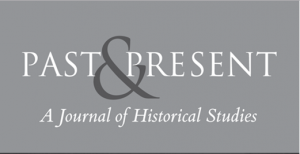Received from Dr. Samuel Foster (University of East Anglia)
The programme for Contested Minorities in the ‘New Europe’: National Identity from the Baltics to the Balkans, 1918-1939, which will take place at Birkbeck College, University of London between 1st and 2nd June 2019, has been published. Among the many challenges facing the new, or enlarged, nation-states that arose on the territories of the former empires of Central, Eastern and South-Eastern Europe in 1918, few were as vexing or complex as the ‘minorities question’. Across this mosaic of geopolitical boundaries, what the Czech philosopher Tomáš Masaryk emphatically termed ‘New Europe’, thousands of disparate communities suddenly discovered that they now existed as minorities, often in areas adjacent to their designated homelands. Historical scholarship typically characterises this as coming to fuel authoritarian repression and nationalist animosity. This conference presents an alternative perspective to these notions of inherent antagonism by exploring how interwar minorities strove to develop or preserve their respective sense of national or cultural identity through non-violent means. It also wishes to consider how the interwar period shaped and influenced the idea of minority rights as a legal and ideological concept among international bodies, such as the League of Nations, as well as its historical legacy.
The papers examine minority groups in the successor states of the former Habsburg, Ottoman and the western areas of the Russian Empires between the world wars. Local case-studies and papers exploring the subject of interwar minorities from a ‘bottom-up’ perspective are particularly encouraged. Collectively key themes include:
*local and community politics, especially before 1938
*the role of state, cultural or religious institutions in the development of minority identities and processes of engagement
*the formation, or evolution, of international networks including diasporas and cross-border connections
*education, sport and mass culture as vehicles for consolidating or expressing identities
*relations between different minority groups and different types of inter-communal exchange
The organisers are keen to hear from established colleagues who would like to attend the conference and act as panel moderators and discussants. They can be contacted here.
Past & Present is pleased to support this event and other events like it. Applications for event funding are welcomed from scholars working in the field of historical studies at all stages in their careers.

